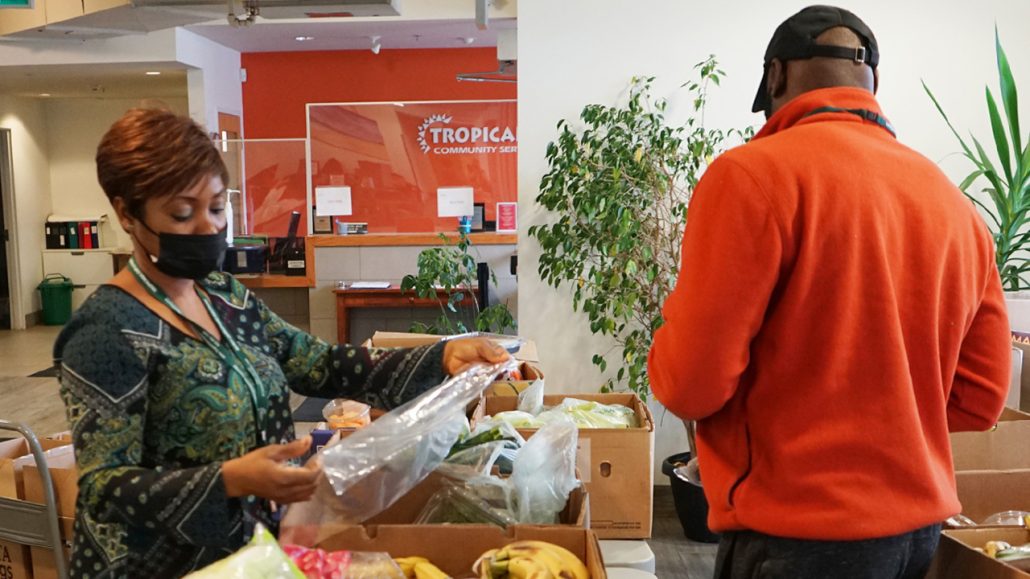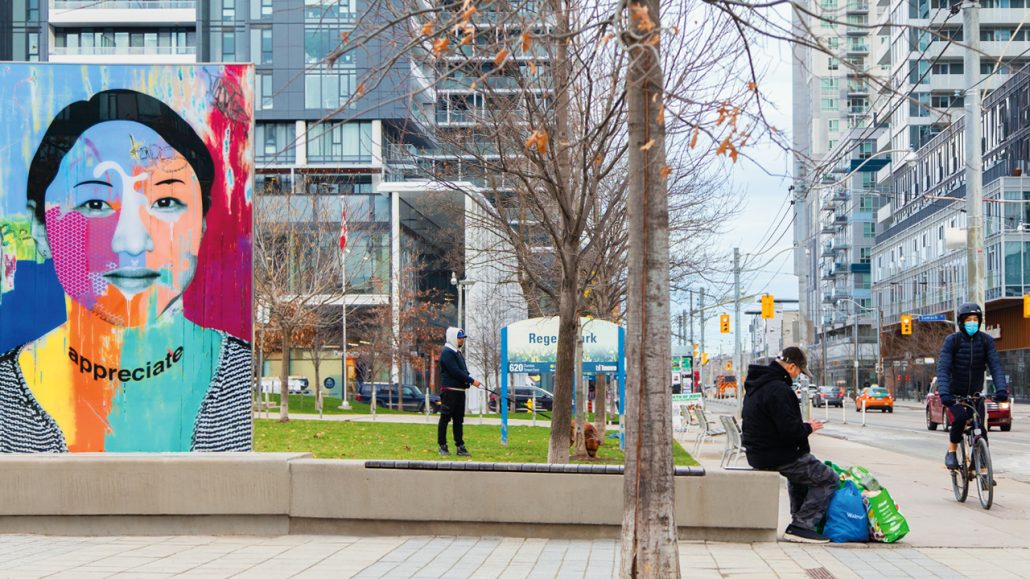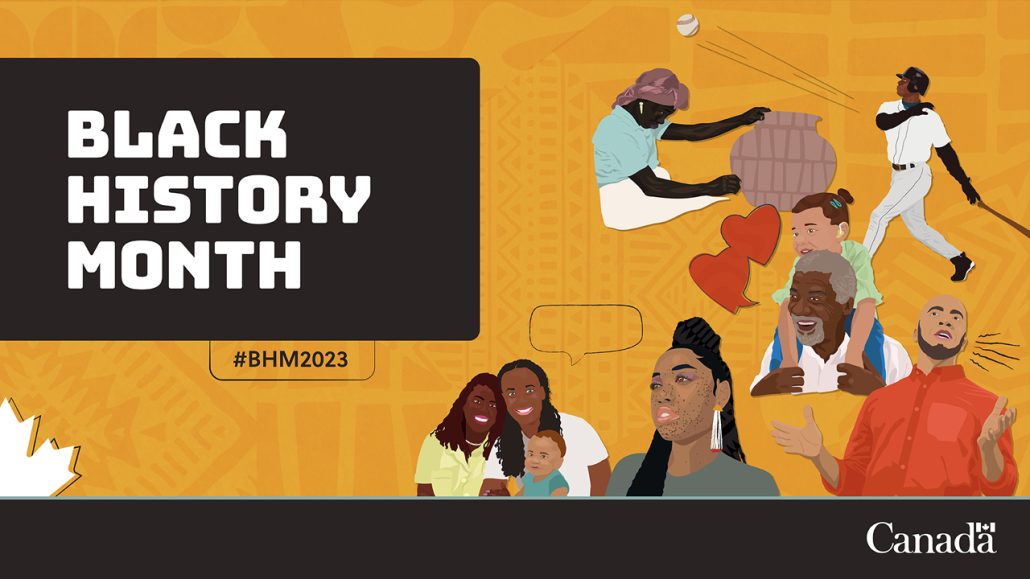
This February and beyond, we will honour the multitude of ways that Black Canadians and People of African Descent have positively shaped our communities
Dear Friend,
As I write this, on what should be a celebratory start to Black History Month, Tyre Nichols is being laid to rest in Memphis, yet another Black man victimized by systemic anti-Black racism. And while this tragedy may have happened in the U.S., we know this is an unfortunate reality for Black Canadians too—we are not immune to institutional racism.
In our work here at United Way, we strive to advance equity in every form, starting with examining our own internal culture and where we could do better. We do research to surface hard-to-deny disparities; we advocate with public and private sector partners to bridge gaps and address the outcomes of institutional racism and bias; and we have shifted our funding to better serve equity-deserving communities.
But Black History Month is about so much more than overcoming. As our partner Raymund Guiste, Executive Director of United Way-funded Tropicana Community Services says, it’s a month of “reflection, appreciation, and inspiration. It’s about acknowledging how the world is changing.” Raymund recommends a few questions we should all ask ourselves:
- What does this month mean to me?
- Why does it affect me and how?
- Who should I be thankful for with regards to their part in history and in making history now?
- Who has created positive change and attention to what needs to change, stands as inspiration, and is making way for a better world?
Raymund pushes us further to engage with the month: shop at local Black-owned businesses, read books and watch films by Black creators, donate to charities that support Black communities and fight racism, and if you are from the community, ask relatives and others to share stories about the people that made a difference to them. “Organizations and individuals need to share their thoughts and perspective, versus posting a picture without context or engagement in the conversation…. That creates conversation and conversation creates change and betterment.”
This February and beyond, we will honour the multitude of ways that Black Canadians and People of African Descent have positively shaped our communities. We will honour the ways that Black leaders are shaping our collective futures. Leaders like Raymund of Tropicana, a multi-service organization that supports Caribbean, Black and African communities; like Paul Bailey of the Black Health Alliance, which improves the health and wellbeing of Black residents; and like Wambui Karanja of African Community Services of Peel, which provides settlement services for Black newcomers. I am continually inspired by their work—and the future they are working to create.
I hope you’ll join me in both reflection and action this February, and in the months and years to come.
Always, and only, thank you.
Daniele Zanotti
President & CEO
United Way Greater Toronto
Things to Know Right Now

Building Inclusive Communities
Growth and affordability don’t have to be mutually exclusive, writes our President and CEO Daniele Zanotti in a recent op-ed. When it comes to development, the familiar pattern sees longtime residents, local businesses, newcomers and community organizations edged out by higher rents and costs of living. But there are ways to approach development and revitalization that allows residents to share in the prosperity of the neighbourhood rather than exclude them. In Building Inclusive Communities: Learning from Programs and Policies that Work, we identify nine tried-and-tested interventions that can lead to more inclusive neighbourhoods. These interventions are already having an impact in Scarborough’s Greater Golden Mile with the Aecon-Golden Mile Joint Venture led by United Way and BMO, in downtown Toronto with the Parkdale Neighbourhood Land Trust and in Brampton with the Supply Chain Diversity Program. “These initiatives—all examples of effective interventions identified in our report, active and on the ground—are a starting point for possible change,” Daniele writes.
Diversity in Leadership
Leadership tables in Canada continue to lack diversity. While racialized individuals represent 28 per cent of the population in major Canadian cities, they only hold 10 per cent of board positions. CivicAction is seeking to address this problem with BoardShift, a new program that matches racialized talent with nonprofit, charitable and board positions. United Way Greater Toronto is proud to be one of the first organizations to join BoardShift.
Get Involved

Black History Month Events
Black History Month has arrived and there are many events celebrating the impact, contributions and achievements Black Canadians have made in our communities.
- United Way-funded Skills for Change’s Black Community Access Program will be having a panel discussion on Black Solidarity: Recognizing Historical and Cultural Richness, Feb. 8
- Brampton Library programming and events
- Black History Month Market in Mississauga, Feb. 24
- Aurora Black Community events
- Newmarket events
- York Region Alliance of African Canadian Communities’ Black History Month Celebration, Feb. 18
- Toronto Public Library events
- KUUMBA, Toronto’s largest Black Futures Month celebration, at the Harbourfront Centre until Feb. 28
Become a United Way Member
Voting Members of United Way are essential to our fight against poverty in communities across Peel, Toronto and York Region. Members are invited to attend our Annual General Meeting to vote on the appointment of Trustees, auditors, and other special business, receive the annual audited financial statements, and hear reports on our work. Interested? Apply before March 2, 2023.
Community Services Recovery Fund
We’re proud to be delivering the Community Services Recovery Fund—a $400 million investment from the Government of Canada to support charities, non-profits, and Indigenous Governing Bodies as they adapt their organizations for pandemic recovery. Apply by Feb. 21, 2023.
Afri-Can Food Drive
Many Canadians are seeing the cost of food climb higher and food banks are stretched thin. In Toronto, where more than 100,000 African/Canadian/Black residents are food insecure, including 40,000 children, United Way-funded Afri-Can Food Basket (AFB) works to reduce hunger with holistic solutions like BlackFoodToronto and an expansion of the Black Food Access Network, supporting 40,000 households with culturally sensitive fruits, vegetables and non-perishables. But the need continues to grow, which is why AFB is launching a food drive to coincide with Black History Month. They are asking stores and businesses to set up a Black Food Access donation bin, which will be supplied by AFB. For more information, contact Zakiya Tafari, Executive Director, at 647-962-3479 or ztafari@africanfoodbasket.ca.
You Might Also Like
- United Way-funded Mississauga Food Bank pens letter asking Trudeau for a national solution to poverty and hunger
- Pilot project in Peel Region aims to reduce domestic violence by pairing police officers with social workers
- United Way-funded 360°Kids’ Nightstop program a helpful alternative to shelters for youth struggling with housing